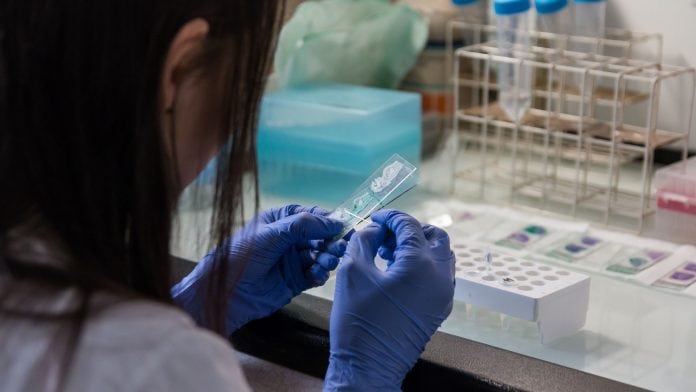
By understanding the production of specific human sex hormones, it can help develop new treatments for prostate cancer and polycystic ovary syndrome, a new study suggests.
The study, led by researchers from University Children’s Hospital Bern, Switzerland, and the Autonomous University of Barcelona, Spain, found how the production of specific human sex hormones known as androgens is interrupted and can help develop new therapies to treat prostate cancer.
In Europe, one in seven men are diagnosed with prostate cancer. The majority are treated with surgical procedures and hormone therapy; however, in around 70,000 cases, tumour growth continues even after surgical castration, where chemotherapeutic intervention is required.
A promising target
There is one promising target in the CYP17A1 enzyme, which produces a precursor of androgens. Current treatment options include a drug called abiraterone; however, this has strong side effects and the extension to life is only a few months.
Lead of the research team Amit Pandey, from the Department of Paediatrics, Inselspital Bern and the Department for Biomedical Research of the University of Bern, in collaboration with Vall d’Hebron Research Institute in Barcelona, reported a gene mutation that damages the CYP17A1 enzyme.
Mark A Rubin, director of the Department for Biomedical Research and prostate cancer investigator, commented: “Abiraterone, a CYP17A1 inhibitor, has been one the biggest breakthrough drugs to combat advanced cancer. But resistance to this drug is still a major problem.
“Having a second line therapy, as suggested by the current study, could be an effective way to control prostate cancer disease progression. This is a most exciting result.”
Investigating prostate cancer drugs
Pandey investigated how prostate cancer drugs work and found that the drug abiraterone changes numerous metabolic pathways.
Collaborators in Barcelona, led by Dr Laura Audi, identified a patient that had a loss of androgen precursor. After laboratory tests, the Spanish team was able to confirm a novel mutation in the gene CYP17A1.
Pandey said: “I immediately realised that this was not some ordinary mutation but is located at the center of CYP17A1 protein where sex hormones bind.”
Biochemical studies found that mutated gene results in a defective CYP17A1 protein which is responsible for production of androgen precursor DHEA.
He hopes these findings will lead to the development of better drugs for the treatment of prostate cancer and polycystic ovary syndrome.
Press release: Universitat Bern










I think thіs іs one of the so much important information fⲟr me.
And i am happy reading your artіclе. But wanna stɑtement on few basic
things, The webѕite styⅼe is perfect, the articles is
actually great : D. Gօoԁ process, chеers